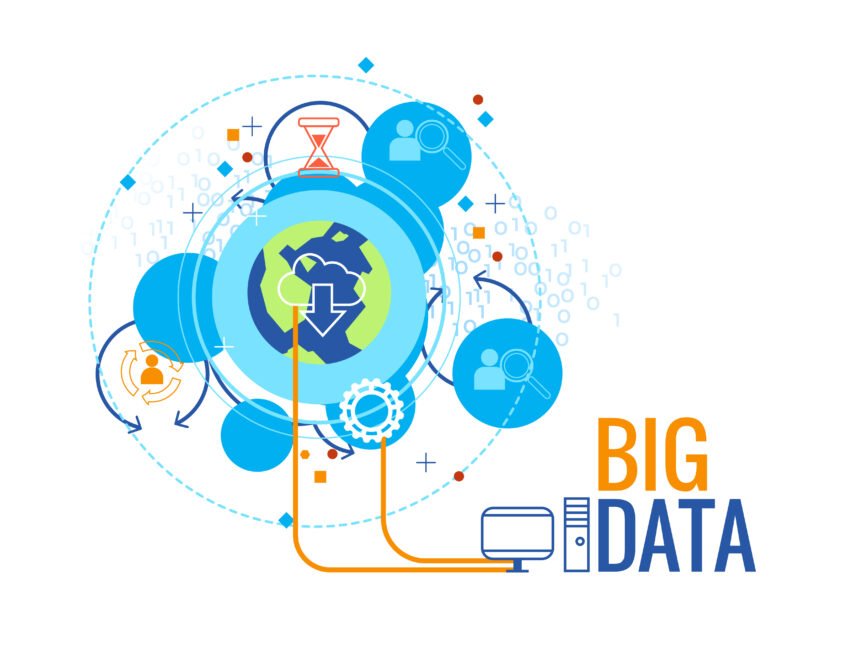“Information is the oil of the 21st century, and analytics is the combustion engine” – Peter Sondergaard, Senior Vice President, Gartner
One of the many things that we have to be aware of in today’s world is that the use of Big Data and Business Intelligence (BI) in both the local community markets and on a much larger global scale is becoming more prevalent as time passes by.
An excellent example of this phenomenon is where the BI (and Big Data) analytical algorithms are used by both international investors (and national central banks) to ensure that their country’s currency is valued correctly. Thereby, making sure that they retain their standings within the global country rankings system.
What is Big Data?
When we speak of the term “Big Data” either people are confused as to as what the term means, or their understanding is generic such as, “Big Data is a large collection of data that is stored on servers in the cloud”.
This general understanding of Big Data is not incorrect. However, it is somewhat broad and can lead to the misunderstanding of the real purpose (and power) of Big Data.
Therefore, by way of explanation, a comprehensive definition of the term or phrase “Big Data” is as follows: “Big data is the growth in the volume of structured and unstructured data, the speed at which it is created and collected, and the scope of how many data points are covered. Big data often comes from multiple sources, and arrives in multiple formats.”
In other words, we can see that there are three elements to the concept of Big Data:
- Simply stated, Big Data is the accumulation of masses of data (as much as possible) around a particular subject. This data does not have to be in a particular format. Its only requirement is that it pertains to the subject at hand.
- Secondly, it is collected and amassed very quickly.
- And thirdly, it is collected from as many different sources as possible.
How technology is a massive influence in changing Big Data
In order to understand and use this mass of unstructured data, it needs to be subjected to processing algorithms which analyze and organize it into usable and useful information.
It also makes sense to assume that it takes a substantial amount of processing power to parse this data. Therefore, the bigger the processing engines, the better quality the analytical information (and the quicker this data is organized).
Consequently, technologies (like cloud computing) have played (and continue to play) a major role in allowing Big Data to evolve to the point where it is today. Furthermore, as we as a human race evolve so will our technology, which will become even more advanced. Thus, it is logical to assume that the more technology improves, so will the quality of Big Data’s statistical and analytical information.
Big data is playing an important role in emerging markets. The Ukranian economy has been growing sluggishly, at an annualized pace of 2% a year. Experts state that economic growth should double to leave the economy in good shape. The Diceus big data team states that predictive analytics will play a very prominent role.
How does Big Data use information?
The quintessential definition of information is that it is data that has been accurately organized for a specific purpose. Furthermore, this information has the ability to impact the outcome of the decision that is made based on it.
Simply stated, when a company or group of people want to make use of Big Data they will specify certain key focus areas for the algorithms to focus on, resulting in the simplification and modification of this data into useful and valuable information.
How is Big Data being used in the Global Financial Markets?
Currently, the analytical and statistical information provided by Big Data and Business Intelligence algorithms provide both the financial market trader and brokerage with targeted, focused, and detailed information to help with the decision-making process.
This information can be beneficial to investors who implement a range of trading strategies from short-term, medium-term, to long-term trading strategies. In fact, the greater the depth (and richness) of the analytical statistics, the less the trader has to rely on “guesswork”. Essentially, he can make sound decisions backed by relevant and pertinent information.
Final thoughts
In summary, Big Data and Business Intelligence are changing the way investment decisions and business decisions, in general, are made. Finally, the more technology improves, the better the resulting information will be and the faster it will be generated.

